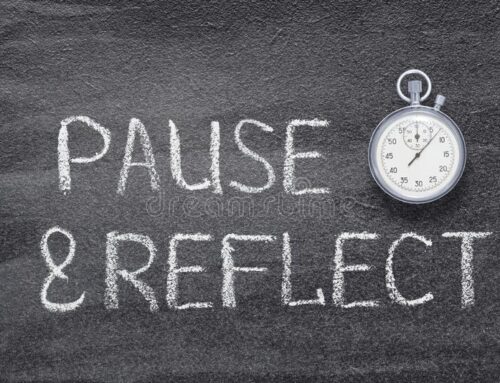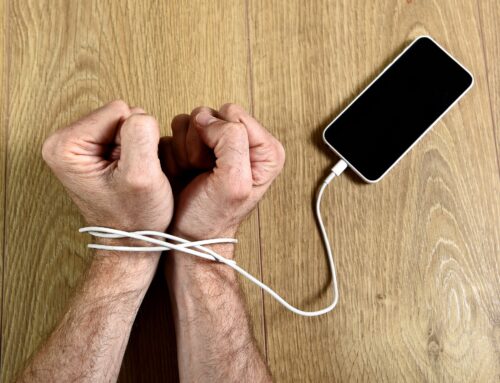3 Reasons You Shouldn’t Escape Your Difficulties
December 1, 2017
Categories: Anxiety
One of my favorite movies is the Shawshank Redemption. The movie tells the story of Andy Dufrense, a banker who is convicted and sentenced to life in prison for the murder of his wife. Eventually, Andy regains his hope and the movie ends with, you guessed it, his escape. (Sorry for the spoiler. The movie was released 1994, so you had over 20 years to see it!)
Escape is Exciting
There is something about escape that is incredibly exciting. A person might be caught in a difficult or unpleasant situation, but then there is an adventure or ordeal that ends with liberation and change. There are many, many movies and television shows that are based on this premise.
We Escape Difficulties Too Quickly
In real life, however, I would like us to consider this idea: When we are faced with a difficult situation or unpleasant emotion, we have the tendency to escape too quickly.
I was aware of this urge to escape in my own life the other day. I have a tendency to pack my life so that it is very busy—with papers, grants, traveling, etc. And even when I have down time, I get bored quickly, so I have a tendency to fill the time with checking email, facebook, or espn.
My counselor encouraged me to explore why I was creating such a busy, packed life. In other words: What was I trying to escape from?
3 Reasons You Shouldn’t Escape Too Quickly
There are many different ways to escape: drugs, alcohol, sex, work, exercise, TV… Some ways to escape are more positive, and some ways are more negative. We all need to escape sometimes. But I think there are some downsides to escaping. Here are 3 reasons you shouldn’t escape your difficulties too quickly:
- Escape robs us of important information. When we are faced with a difficult situation or experience an unpleasant emotion, escaping does reduce the discomfort in the moment. But we lose the opportunity to learn about ourselves. What is it about this situation or emotion that is difficult or unpleasant? Why do I experience it so negatively? Would the average person experience this situation in the same way, or is there something about my personality or past experiences that exacerbates this situation? Escape robs us of an opportunity to learn and grow.
- Escape robs us of the opportunity to improve our “muscle” to deal with difficult or unpleasant situations and emotions. Have you ever noticed that some people are able to deal with very difficult situations with grace, whereas others seem to “lose it” every time any little thing goes wrong? Being able to deal with unpleasant situations or emotions is a skill that takes practice. If we escape from a situation as soon as we feel something unpleasant, we don’t give ourselves the opportunity to improve this skill.
- Escape actually increases anxiety about difficult situations over the long run. It seems counter-intuitive, because the escape usually lowers our anxiety right away. However, research has shown that escape and avoidance actually increase our anxiety over time. The reason is, when we escape, we still have a fear about what might have happened had we not removed ourselves from the situation. So, for example, let’s say I have a fear of flying, so I avoid traveling by plane. When I avoid the plane my anxiety decreases in the moment. However, I still have fear about what would have happened had I actually gone on the plane. So I feel a sense of relief about escaping the unpleasant situation, but I think if I had stayed on the plane, I might have died (or something else horrible could have happened). So the anxiety stays.
The next time you are faced with a difficult situation or unpleasant emotion and want to escape, STOP! Resist the urge to escape right away. Sit with the discomfort for a bit. You can always decide to escape at a later time if the discomfort gets too intense. But for now, sit with the discomfort. See if it has anything to teach you about yourself, your struggles, or your past experiences. See if you might be willing to sit with the discomfort to practice working on your “muscle” to deal with difficult situations or unpleasant emotions. And by sticking with the unpleasant situation or emotion, your anxiety might actually go down in the long run.
Discussion: What are your “go-to” ways of escape? What kinds of situations or emotions do you feel the urge to escape? What might this discomfort have to teach you?

Related Thoughts
No Comments
Leave A Comment

Subscribe To My Newsletter
Join my mailing list to receive the latest blog posts.
Receive my e-book “The Mental Health Toolkit” for free when you subscribe.






[…] of the most difficult things about obstacles is to stay engaged with them. Our natural tendency is to avoid pain and escape. We might do this physically—actually remove ourselves from the situation. But even if we can’t […]
[…] advice rushes through the discomfort. Experiencing pain and struggle is uncomfortable. Our natural tendency is to avoid or distract ourselves from the discomfort. Giving advice supports the desire to escape uncomfortable feelings. Advice says, “You don’t […]
[…] most common response when we feel fear is to do something to escape or avoid the thing we are afraid of. If we are truly in danger, this is very important. For example, if we […]
[…] thinking about anxiety. First, anxiety is about fear. Our natural response when we feel fear is to escape or avoid the thing we are afraid of, but this habit actually exacerbates the fear connection in our […]
[…] When you experience a painful thought, feeling, or bodily sensation, the natural tendency is to do something to avoid what you are experiencing. ACT says that, paradoxically, this pull to change or avoid your internal […]
[…] I talked about the root of anxiety, which is fear. I also talked about the natural tendency to avoid or escape the thing we are afraid of, and how that response actually reinforces our […]
[…] has to do with fear. When we feel fear about a situation, our natural tendency is to escape or avoid the thing we are scared of. The normal reaction is to move away from our […]
[…] Most people shy away from problems. They don’t like them, so they try to avoid them. This is natural—we all have a tendency to avoid pain and discomfort when possible. […]
[…] 16:33). We can’t get away from pain, or completely remove it from our lives. And sometimes, when people try to escape their struggles, it actually makes their life […]
[…] 16:33). We can’t get away from pain, or completely remove it from our lives. And sometimes, when people try to escape their struggles, it actually makes their life […]
[…] unpleasant, so we put off the task, kicking the can into the future. Even though we think we are escaping the unpleasant event (for a time), we still pay the price, because we experience the anticipatory anxiety in the […]
[…] of us try to avoid or escape from our problems. I’m guilty of this as much as anyone. In my relationship with my wife, for example, I don’t […]
[…] we experience pain in our lives, our natural tendency is to avoid it. In a way, this makes sense. No one likes to feel pain, so why not do something to take the pain […]